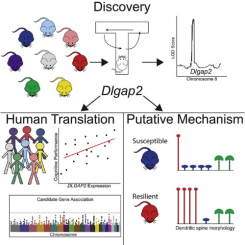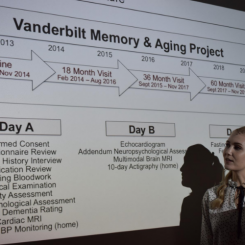Shannon Turner
Shannon Mercado is a Senior Program Manager for the Vanderbilt Memory & Alzheimer's Center working with the Computational Neurogenomics Team focusing on project management, proposal development, and implementation of large-scale collaborative projects. She graduated from the University of Oregon with a Bachelor of Arts in Journalism: Public Relations with a minor in Public Policy, Planning and Management. She joins the VMAC team with several years' experience coordinating RFP responses for federal grants and coordinating logistics for growing nonprofit organizations.





